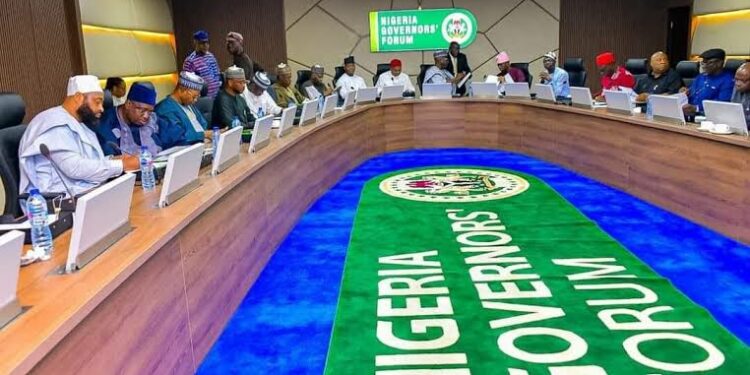Early Marriage, Poverty Major Obstacles To Girl-child Education — Govs
The Nigeria Governors’ Forum (NGF) has identified early marriage, poverty, and other societal challenges as major impediments to girl-child education in the country.
Chairman of NGF and Kwara State governor, AbdulRahman AbdulRazaq, disclosed this at the First International Conference on Girl Child Education in Nigeria, held on Thursday at the Presidential Villa, Abuja.
The NGF chairman, who was represented by the director-general (DG) of the Forum, Abdulateef Shittu, highlighted the issues in his welcome address.
He stated, “Practices such as early marriage, early childbearing, poverty, illiteracy, gender-based violence, and other forms of discrimination continue to violate girls’ rights to education in our communities.”
The conference, themed “Girl Child Empowerment through Quality Education,” brought together stakeholders from various sectors to address the educational challenges facing girls in Nigeria.
Governor AbdulRazaq expressed deep concern about the current state of education, noting, “The NGF is deeply concerned by the rising number of out-of-school children, pervasive learning poverty, and the insufficient capacity of teachers to foster empowerment through education.”
In response to the identified challenges, the NGF and its partners have committed to tackling fundamental issues in the education sector.
“Our goals include enhancing basic numeracy and literacy, increasing primary school enrollment to reduce the number of out-of-school children, and ensuring smooth transitions from primary to secondary education,” Governor AbdulRazaq explained.
The conference also highlighted positive trends in education financing at the state level.
According to the NGF chairman, “In 2022, states allocated N1 trillion (12%) of their total expenditures to education. This increased to N1.6 trillion in 2023 and further to N2.4 trillion in 2024.”
He specifically commended states such as Lagos, Enugu, Kaduna, and others for meeting or exceeding the international benchmark of allocating at least 15% of their annual budgets to education.
To address the challenges facing girl-child education, the NGF has established various platforms and initiatives.
They include the NGF-Education Community of Practice (NGF-ECP), the Committee of States Commissioners of Education (COSCEN), and the Girl Child Education Volunteers’ Advocates (GICEVA).
Governor AbdulRazaq emphasised the critical importance of investing in children’s education, particularly for girls.
He concluded, “When equipped with quality education, they gain the knowledge, skills, and confidence to contribute meaningfully to society, unlocking their potential to drive economic advancement and social change.”
The conference aims to develop actionable strategies to advance quality education for all children in Nigeria, with a particular focus on empowering the girl child through education.
On his part, Minister of Education, Prof. Tahir Mamman, announced a new educational framework aimed at transforming Nigeria’s basic and secondary education system.
Prof. Mamman emphasized the crucial role of state governors in implementing educational policies, stating, “When the governors convene a conference to discuss issues that are within their domains, they are simply asking us to work together.
It is primarily a huge responsibility for the governors to deliver on all the mandates.”
The minister highlighted the constitutional mandate for free and compulsory education, asserting, “This means that every child, girl or boy, should be an educated person.”
However, he acknowledged that the implementation has faced challenges, resulting in a significant number of out-of-school children, particularly girls.
Addressing these issues, Prof. Mamman revealed that President Bola Tinubu’s administration has prioritized education, ensuring that “no Nigerian child fails to attend school due to a lack of resources, location, or any other reasons.”
The new framework, dubbed the “Transformative Vanguard,” aims to revolutionize the education sector.
Prof. Mamman explained, “From today, you will hear a lot about the framework that will deliver and ensure quality education for young people and education that will also allow them to acquire some skills.”
A key innovation in this framework is the focus on skills acquisition. The minister elaborated, “This is the new aspect: by the time a child finishes basic education at secondary school, even without going to university, they will have acquired skills that they can connect with society.”
Prof. Mamman expressed gratitude to the NGF and international organizations for their support, noting that addressing the issue of out-of-school children is a global concern.
He stated, “Once Nigeria gets it right, from what I have seen in my interface with the international community, everybody is optimistic because the figures are either gratifying or down casting.”
The minister concluded by announcing plans to meet with state governors in the coming month to discuss the federal government’s new initiatives.
Source: Leadership NG.



